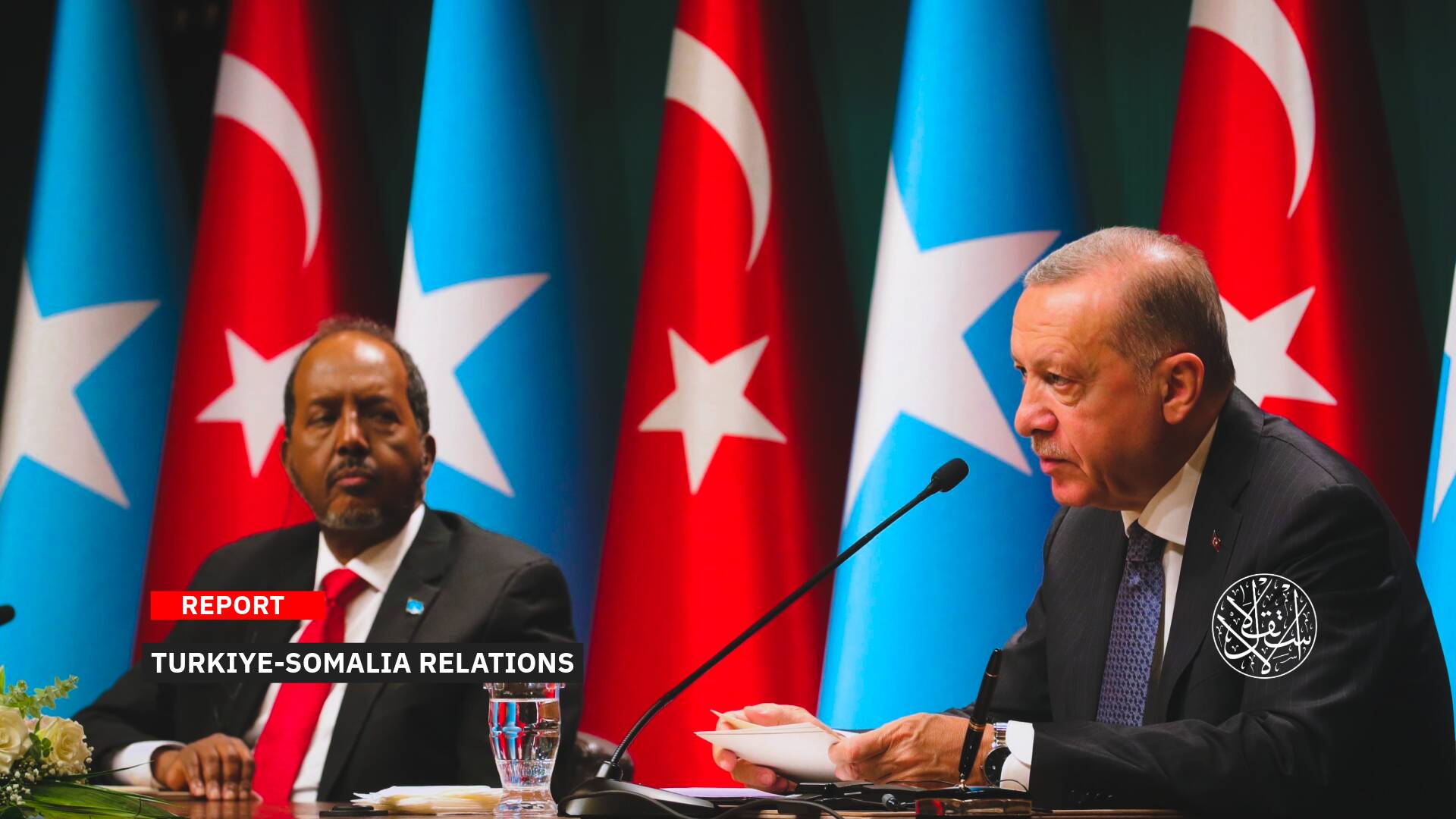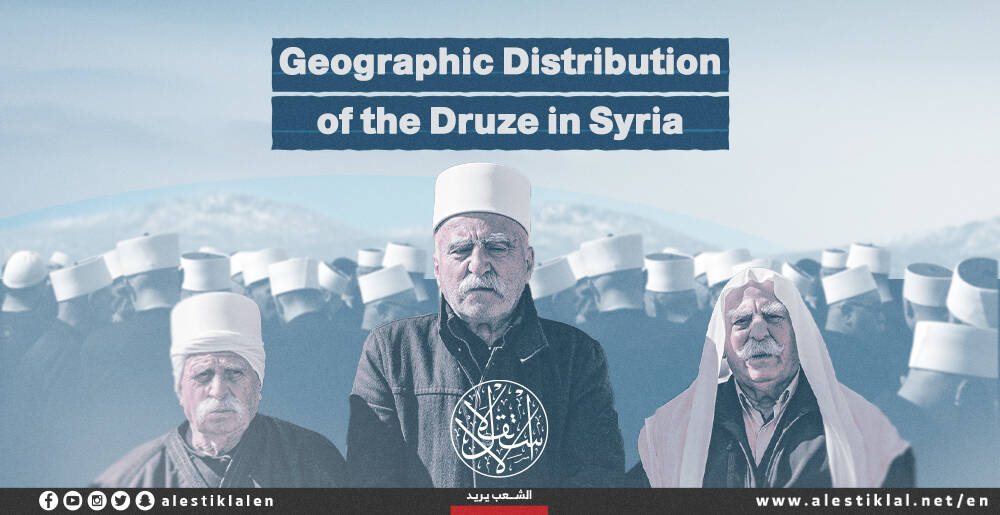Threats and Politicization: How the UN Failed to Deliver Aid to Earthquake Victims in Northwestern Syria

Although 15 days have passed since the earthquake disaster and the opening of three border crossings with Turkiye, the humanitarian situation is still dire in northwestern Syria, where tens of thousands are sleeping in the open without tents or shelter to protect them from the cold.
The UN waited 8 days before sending the first delegation to the northwestern region to assess the needs for rescue operations and relief for the affected people after obtaining the approval of the Assad regime.
This approval exposed the UN organization to additional accusations of politicizing aid and granting the head of the Syrian regime, Bashar al-Assad, free gains.
During the 8 days that preceded that, thousands of Syrians died awaiting rescue from under the rubble, and those who survived them expressed their anger and feelings of abandonment in massive campaigns.
The response came from UN Under-Secretary-General Martin Griffiths, who acknowledged in a tweet that the international organization had failed more than 5 million civilians residing in northwestern Syria, vowing to correct this failure as soon as possible.
At the #Türkiye-#Syria border today.
— Martin Griffiths (@UNReliefChief) February 12, 2023
We have so far failed the people in north-west Syria.
They rightly feel abandoned. Looking for international help that hasn’t arrived.
My duty and our obligation is to correct this failure as fast as we can.
That’s my focus now.
However, instead of correcting the failure, as Griffiths pledged, the Syrian Civil Defense (The White Helmets) organization revealed that the UN delegation threatened relief organizations in northwestern Syria, telling them that the support provided to them is conditional on their silence and their cessation of criticism of the UN, which caused a shock that resulted in more criticism.
4/4ـ لنضع السياسة جانباً ونطالب بعدم تسييس المساعدات بما يضمن الاستجابة للمتضرريين، ولكن الوكالات الأممية تصر تسييسها عبر طلبها الموافقة من نظام الأسد على فتح المعابر رغم وجود سند قانوني يمنحها صلاحية تنفيذ عمليات عبر الحدود دون احتياجها لأي تفويض من الدول أو من مجلس الأمن.
— Raed Al Saleh ( رائد الصالح ) (@RaedAlSaleh3) February 16, 2023
UN Scandal
After a wave of Syrian anger over the UN position on the earthquake, which many Syrian political leaders described as failing, UN Secretary-General Antonio Guterres made a humanitarian appeal to support the Syrians on all Syrian lands.
Guterres launched an appeal to raise $397 million in support of Syria in facing the effects of the devastating earthquake, 8 days after it occurred.
"This is a moment for unity, for common humanity and concerted action."
— United Nations (@UN) February 14, 2023
-- @antonioguterres calls on the international community to support US$397 million humanitarian appeal for the people of earthquake-ravaged Syria. pic.twitter.com/nC6bDKxnxX
However, the UN’s position was not at the level of responsibility, according to the description of the head of the Syrian High Negotiations Committee, Bader Jamous, who held the international organization responsible for the new displacement in northwestern Syria, calling for a more serious stance regarding what the Syrians are being subjected to in that region.
During a meeting with UN envoy for Syria, Geir Pedersen, SNC president @JamousBader conveyed the messages of civilians in NW #Syria, and stressed that UN had failed the Syrians by the delay in sending aids after the #earthquake. (4/1)
— هيئة التفاوض السورية | SNC (@SyrianHNC_en) February 15, 2023
In turn, the head of the White Helmets, Raed al-Saleh, held the UN fully responsible for the deaths of hundreds of Syrians under the rubble, accusing it of negligence and delay in moving toward the catastrophe, and considering that this position is not commensurate with the damage caused by the earthquake.
“What the UN has done in northwestern Syria is a scandal, due to the media misinformation carried out by the organization’s chief official and the failure to send medical and relief aid in a timely manner,” he said.
“Since the first day of the earthquakes, only 10% of the medical and relief needs of the earthquake-stricken people in northwestern Syria have entered,” al-Saleh added during an interview with Al-Jazeera Mubasher on February 16, 2023.
“The Under-Secretary-General for Humanitarian Affairs and Emergency Relief Coordinator Martin Griffiths apologized for the UN’s shortcomings in northwestern Syria,” al-Saleh explained.
“The UN does not want to hear criticism. It is used to working with a bureaucracy that kills people. They do not want anyone to hold them accountable,” he added.
“What the UN is providing is not consistent with the scale of the disaster in northwestern Syria, and an international investigation must be opened, and the approved humanitarian action mechanisms must be changed because they kill innocent people,” he said.
“The UN is the one that politicized the humanitarian aid, adding that Qatar and Saudi Arabia entered the humanitarian aid through the Bab al-Salama crossing without any problems,” al-Saleh revealed.
He also made it clear that the UN delegation refused to visit Jindires in the countryside of Aleppo, which was recently destroyed by the earthquake, citing that the administration did not allow them to do so, adding that they also met in Sarmada near the Syrian–Turkish border, 300 meters from the site of destruction, without visiting it.
The head of White Helmets revealed that the Disaster Response Team sent by the UN to Idlib and Afrin had expressed its deep annoyance at the criticism leveled at it, pointing out that the team told the Syrian organizations: “You have to choose your right place. That is, in order to obtain financing, you must remain silent.”
Al-Saleh held UN Secretary-General responsible for the deteriorating humanitarian situation in northwestern Syria, saying, “Antonio Guterres has powers to bring humanitarian aid into the stricken areas without returning to the Security Council,” in an indication that the UN waited until the approval of the Syrian President Bashar al-Assad to start bringing relief materials.
On the other hand, the head of the United States Agency for International Development, Ambassador Samantha Power, announced on February 17, 2023, that the agency provided $5 million to the White Helmets, with the aim of helping the Syrian rescue teams purchase vehicles and fuel, develop the ambulance system, and meet their other needs.
.@USAID is providing them an additional $5M to assist with rescue equipment, fuel for life-saving operations, and crucial support for ambulance networks to connect people in disaster zones with emergency health care services. pic.twitter.com/7BO2RwuLn3
— Samantha Power (@PowerUSAID) February 17, 2023
The British Secretary of State for International Development, Andrew Mitchell, announced that the UK has provided £4.3 million sterling to help the White Helmets in rescue operations in northwestern Syria.
I was honoured to meet @SyriaCivilDef heroes involved in search and rescue operations in north-west Syria today.
— Rt Hon Andrew Mitchell MP (@AndrewmitchMP) February 19, 2023
���� is proud to be a long-term partner of the White Helmets. ���� has released an additional £4.3m of funding since the earthquakes in support of their vital work pic.twitter.com/FQ02kHibZ5
Political Gains
In response to appeals and criticism, the UN announced on February 13, 2023, the opening of the Bab al-Salama and al-Rai border crossings with Turkiye to its aid for a period of three months, after obtaining the approval of the Syrian regime, although the two crossings are under the control of the Syrian opposition.
However, the aid is still small, not commensurate even with its size before the earthquake.
After the earthquake, the UN sent about 200 trucks to northwestern Syria, compared to an average of 145 trucks per week in 2022, according to Doctors Without Borders.
In turn, Adam Coogle, deputy Middle East director at Human Rights Watch, said, “The Syrian government’s history of obstructing aid combined with the failure of the Security Council-authorized cross-border mechanism to meet the urgent needs of Syrians in the besieged northwest show that alternative aid systems are necessary.”
The Financial Times also indicated, in a report on February 20, 2023, the UN’s acquiescence to the dictator Bashar al-Assad, who turned the aid delivery process into a weapon, accompanied by his Russian ally, Vladimir Putin.
“How the UN Secretary-General interpreted international law gave the impression that this law was designed specifically to protect war criminals like Bashar al-Assad, not to protect civilians,” it added.
In the same context, Syrian opposition institutions and organizations criticized the UN resolution, which gave Bashar al-Assad the opportunity to have a say regarding the division of aid that enters the opposition-controlled areas in northwestern Syria through the border crossings with Turkiye.
The head of the Syrian Opposition Coalition, Salem al-Muslat, criticized the opening of the two crossings, which are under the control of the Syrian Interim Government, strongly condemning the UN’s disregard for the crimes of the Assad regime, and pointing out that the UN’s statements are biased toward the criminal regime and provoke the provocation of the Syrian people.
The crossings that were opened are under the control of the Syrian Interim Government.We strongly condemn the United Nations' disregard for the crimes of the regime and its engagment with it. The UN statements are biased towards the criminal regime and provokes the Syrian people.
— سالم المسلط - Salem Al-Meslet (@pofsoc) February 14, 2023
On his part, the head of Syrian Civil Defense accused the UN agencies of politicizing aid by requesting the Assad regime’s approval to open crossings to deliver emergency aid.
Raed al-Saleh indicated in a statement to Reuters on February 14, 2023, that “there is what he called a legal basis that allows the UN to carry out cross-border operations without the need for authorization from countries or even the Security Council.”
He considered that the UN measures gave Bashar al-Assad free political gains, adding: “This is shocking. We are puzzled by the actions of the UN.”
Reuters indicated that al-Saleh’s statements are in line with the feelings expressed by many Syrians in the area under opposition control, which was devastated by the earthquake.
In this context, Syrian journalist Muhammad al-Youssef considered, in a statement to Al-Estiklal, that “the devastating earthquake that struck northwestern Syria revealed once again the UN’s complicity with the Assad regime in politicizing the humanitarian aid file.”
“The UN has failed the Syrians in their worst conditions 12 years ago. In addition to that, there are many indications that showed clear international neglect of the needs of the Syrians during the catastrophic earthquake, which contributed to transforming rescue operations into corpse-finding operations,” he added.

On February 6, an earthquake struck southern Turkiye and four Syrian governorates. The total number of deaths resulting from the earthquake in northwestern Syria reached 2,274, and the number of injured was 12,400.
Since the earthquake occurred, the residents of northwestern Syria have been complaining of being abandoned by the international community, while international relief teams and aid planes have flown into Turkiye, and dozens of planes have arrived in areas controlled by the Assad regime, especially from its allied countries.
The earthquake led to the displacement of 172,000 people in northwestern Syria, which is inhabited by more than 5 million civilians.
According to what the Syria Response Coordinators team announced, among the displaced, there are about 36,000 people living in shelters and camps in the countryside of Idlib and Aleppo.
Sources
- The Syrian Civil Defense accuses a UN team of threatening humanitarian organizations
- Statement by the Secretary-General - on opening of crossing points
- Northwest Syria: Aid Delays Deadly for Quake Survivors
- Syrian rescue group criticises UN over Assad say on aid deliveries
- Letter: Guterres has no excuse for delays helping Syrian quake victims










